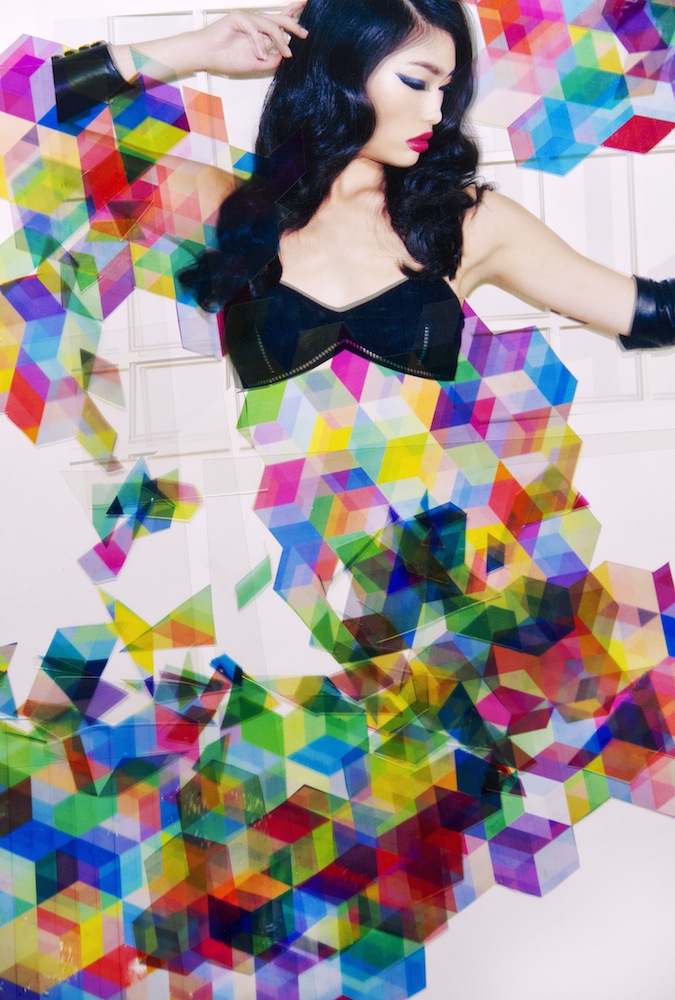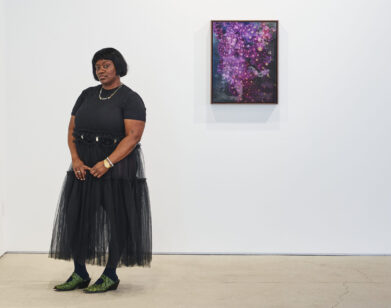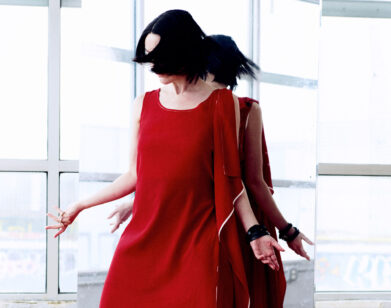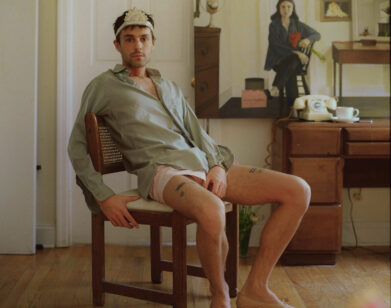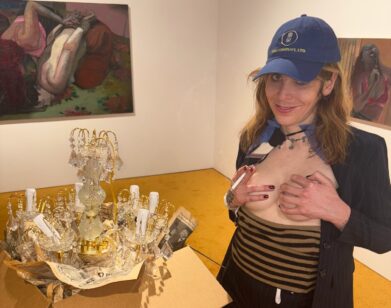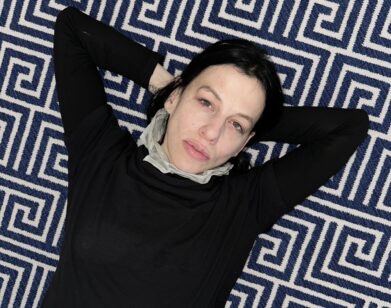In the Eye of Cathrine Westergaard
Voluptuous, vibrant, and searing with sexy energy, Cathrine Westergaard’s photographs are poised pop. The New York native creates fashion images with force; there is a depth and passion in her pictures that goes beyond the beautiful women she is most obsessed with capturing. Perhaps this comes from Westergaard’s unconventional Upper East Side upbringing. Her mother was a Broadway producer best known for the Tony Award-winning Sophisticated Ladies. But beneath the Park Avenue veneer lay addiction, depression, and a constant search for inspiration. Westergaard was haunted by a need to explain the often sad world she saw around her.
Coming to terms with her artistic talents has been its own struggle. She began as a fine artist, but soon abandoned this for photography. Her sumptuously stylized images are triumphant, a tribute to female empowerment and sensuality—with a drama inspired by her mother’s theatrical sensibilities, as well as an underlying darkness. For her latest show at C24, “Kevin Loves Cathrine,” Westergaard has collaborated with artist Kevin Marcell to create bold, brave, iconic pop portraits. We spoke with Westergaard about tap dancing, spirituality, starvation, journaling, unconventional fashion, and her lush vision of true beauty.
ROYAL YOUNG: I love that you’re a native New Yorker, like me. I’d like to hear how your experience growing up here shaped you?
CATHRINE WESTERGAARD: I don’t have the downtown story. I grew up on 82nd, we had a huge townhouse and a very political but also finance-y dad who made tons of money. My mom was stunningly beautiful. But it was all kinds of crazy. My grandmother was a heavy pill popper and my father came from a long line of men who committed suicide, so there was this whole concept that if he ever got past 50, we were lucky. It was a very dramatic family dynamic.
YOUNG: Your mom worked on Broadway; how did that happen?
WESTERGAARD: When the stock market crashed, we went from a townhouse and going to school in a limo to nine of us in a one-bedroom apartment. I remember coming home and seeing the eviction notice. We lost everything. My dad fell apart. But my mom went out and somehow convinced the Ellington family to give her the rights to his music and life. She put together Sophisticated Ladies, her first show, and it was a huge success.
YOUNG: When did you start to feel like you were an artist, or become attracted to visual aspects in the world around you? Did your mom going into theater inspire you?
WESTERGAARD: Yeah, she raised all the money for her first show in our living room. I would sit there with Gregory Hines tap dancing, Phyllis Hyman singing, Judith Jamison dancing, and I’m like, “What the fuck is this?!” I watched my mother pull it all together while my father never recovered. He ended up dying alone in a hospice in the Bronx. For me as a young girl, watching my mom do this was intoxicating. I was always creating, painting, and my mom always told me I had a gift, and I was like “Yeah, yeah, yeah.” I was a weirdo, I got myself baptized when I was 13 and used to take myself to church every Sunday.
YOUNG: Because it helped you make sense of what was happening to your family?
WESTERGAARD: It made the world not be about me, my experience, my sadness, it made it about finding compassion and peacefulness. But then in college, I started to study art in the churches, Michelangelo, the Renaissance. I realized you may hate being an artist and it is the most painful thing to do, but if you are, it will haunt you until you’re doing it. That was essentially how I realized, fuck it, this is who I am.
YOUNG: I think making art is a way of worship.
WESTERGAARD: Absolutely. It has saved my life.
YOUNG: How?
WESTERGAARD: My lowest point was probably in my mid-20s. I kept waiting for someone to come along and make me feel like I was worth something or lovable. I starved myself for practically a year. I was a skeleton, pretty much one foot off the bridge. My godparents swooped in and really saved my life. I started keeping journals, maybe 50 in a year. Then, I started ripping the pages out and making paintings of them. It was really difficult for me to put them on display, because all my soul was on display. But I started doing shows. It was so weird. I didn’t even understand why I was doing it, but people who saw them were so moved. I started getting more propelled to put them out into the world, but then at shows when people asked me to explain or justify them, it would make me enraged. It was my therapy.
YOUNG: There’s a weird dynamic where people are really attracted to art that is very soul-baring. But then once that sort of art is on display, the artist loses all right to privacy; and if they decline to discuss personal stuff, the viewer gets angry.
WESTERGAARD: Yes, and I never played into that intellectual component of the art world. I never wanted to be a famous artist when I was 24, what the fuck did I have to say? I was so lost, so tortured, which is fine for an artist, but I would have had no ability to understand what was going on or why it was important. If I peaked at 24, I think I would have just died. I want to still be motivated and excited about making art when I’m 65, painting in some idyllic setting, wearing coconut shells over my boobs.
YOUNG: How did you end up where you are now?
WESTERGAARD: Keep making art until your voice comes out.
YOUNG: What about the photos and film directing you do now is different from painting?
WESTERGAARD: The photography came because the painting was really lonely. It just wasn’t right for me. I need to be inside the fucked-up meat of life to step back from it and create something beautiful that maybe has a really sad or dark message. But the aesthetic quality has to be there for me. I love fashion photography because I’ve always loved beautiful women and been mesmerized and enchanted by them. Not in a way where I wanted to sleep with them or have them, but more like a beautiful doll. It doesn’t have to be off-the-shelf beauty, I really find my own sense of it.
YOUNG: It seems to me that you like beauty that has been a little torn down by the world.
WESTERGAARD: Absolutely. And I was obsessed with my own beauty when I was younger, because it really determined my value. My dad was terrified and he used to tell me, “Cathrine, you’re not pretty enough. This is a big problem.” We used to have family meetings about it. I used to be grounded because I wasn’t working hard enough to make myself attractive. That is a big part of my fascination with beauty, because it was so painful for me. I felt so isolated from ever being able to achieve it. This is my search to define beauty in my own way, to say, “Fuck you, you don’t know what you’re talking about.”
“KEVIN LOVES CATHRINE” WILL OPEN WITH A RECEPTION AT C24 TONIGHT, OCTOBER 17, AT 7:30 PM. FOR MORE ON THE ARTIST, PLEASE VISIT HER WEBSITE.

